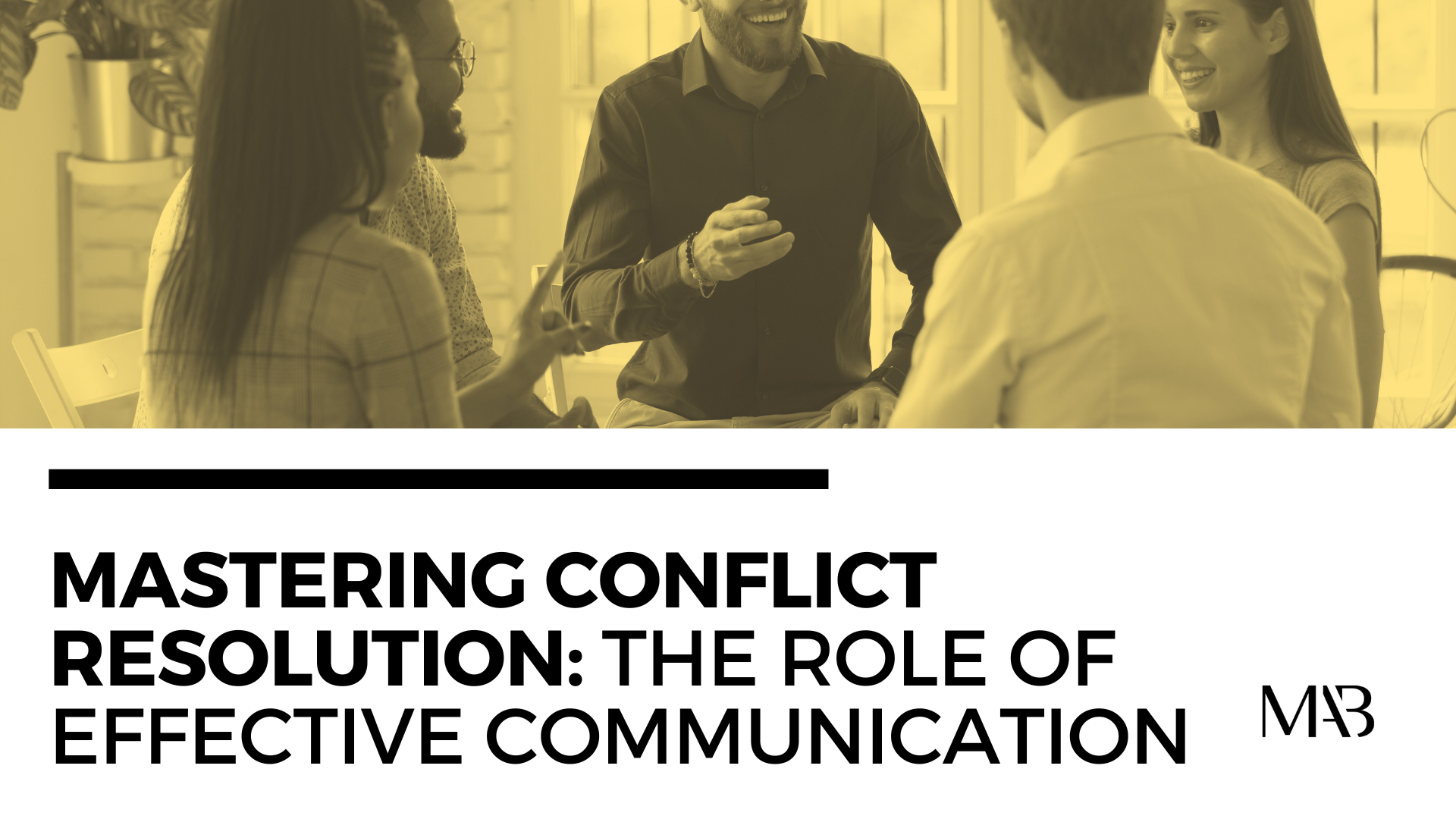Mastering Conflict Resolution: The Role of Effective Communication
In the realm of interpersonal relationships, conflicts are inevitable. Whether they arise in the workplace, within families, or among friends, how we navigate and resolve these conflicts speaks volumes about the health and longevity of the relationships involved. At the heart of successful conflict resolution lies the art of effective communication.

Understanding Conflict
Before delving into strategies for resolution, it’s crucial to grasp the nature of conflict itself. Conflict often arises from differences in opinions, values, or needs. It can manifest as misunderstandings, disagreements, or even deep-seated disputes. However, conflict doesn’t have to be destructive. Handled properly, it can lead to growth, understanding, and strengthened bonds.
The Importance of Communication
Communication serves as the cornerstone of conflict resolution. It’s the vehicle through which parties express their perspectives, needs, and emotions. Effective communication fosters empathy, promotes understanding, and facilitates compromise. Conversely, poor communication can exacerbate tensions, escalate conflicts, and deepen rifts.
Active Listening
One of the fundamental aspects of effective communication is active listening. Too often, individuals focus on formulating their response rather than genuinely hearing what the other person is saying. Active listening involves giving full attention to the speaker, seeking to understand their viewpoint, and validating their feelings. It lays the groundwork for productive dialogue and promotes a sense of mutual respect.
Clarifying Perspectives
In the midst of conflict, assumptions and misinterpretations can abound. Clarifying perspectives is essential for untangling the web of misunderstandings. Encourage open dialogue where each party can articulate their viewpoint without interruption. Clarification not only ensures that both sides are on the same page but also demonstrates a commitment to mutual understanding.
Embracing Empathy
Empathy is a potent antidote to conflict. It involves stepping into the shoes of the other person and striving to understand their emotions and experiences. When conflicts arise, acknowledging the other person’s feelings validates their experience and lays the groundwork for empathy-driven solutions. By empathizing with one another, parties can forge deeper connections and find common ground.
Seeking Collaborative Solutions
Conflict resolution isn’t about winning or losing; it’s about finding mutually beneficial solutions. Collaborative problem-solving encourages parties to work together towards a resolution that addresses the needs and concerns of all involved. This approach fosters a sense of ownership and commitment to the outcome, paving the way for sustainable agreements.
Managing Emotions
Emotions run high in conflicts, and unchecked emotions can derail communication and impede resolution efforts. Learning to manage emotions effectively is paramount. Encourage parties to express their feelings constructively and to take breaks when emotions become overwhelming. By creating a safe space for emotional expression, you can prevent conflicts from spiraling out of control.
Conclusion
Conflict resolution is a multifaceted process that hinges on effective communication. By honing their communication skills, individuals can navigate conflicts with grace, empathy, and resilience. Whether in the boardroom or the living room, the ability to communicate openly, listen actively, and empathize deeply lays the groundwork for harmonious relationships and enduring resolutions.

No responses yet